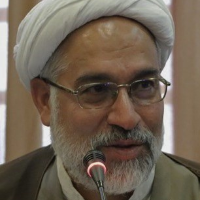Locating Criminal Teachings in Islamic Jurisprudence and its Methodological Consequences
Author(s):
Article Type:
Research/Original Article (دارای رتبه معتبر)
Abstract:
In Islamic jurisprudence criminal teachings are often classified under the title of decrees and punishments (ahkām va siyāsāt). Even jurists who classified different sections of Islamic jurisprudence in a different way, have not put criminal teachings as a part of the acts of worships (ībādāt). In practice, however, the way jurists treat criminal teachings is more consistent with assuming them as a part of the acts of worships, i.e. fixed and unchangeable laws. This article clarifies the location of criminal teachings in Islamic jurisprudence first and then mentions the methodological consequences of this classification. The article concludes that not all criminal teachings and rules can be counted among mysterious laws and/or acts of worships. The laws that contain prohibition of some behaviors might be counted as something mysterious and as a part of the acts of worships, but not those related to the quality and quantity of punishments. Therefore, they can be under the influence of social developments and accept some rational changes except those changes that have been rejected implicitly or explicitly by the holy lawmaker.
Keywords:
Language:
Persian
Published:
Legal Research Quarterly, Volume:22 Issue: 85, 2019
Pages:
169 to 194
https://magiran.com/p1981959
سامانه نویسندگان
مقالات دیگری از این نویسنده (گان)
-
The Challenges of Optimization of Resource Allocation in the Judiciary of the Islamic Republic of Iran
RAHIM NOBAHAR *, Mojtaba Ghasemi, Fateme Saffari
The Judiciary Law Journal, -
Optimizing Resource Allocation within the Judiciary of the Islamic Republic of Iran: A Comparative Study
*, Fatemeh Saffari
Iranian Journal of International and Comparative Law, Winter-Spring 2024


